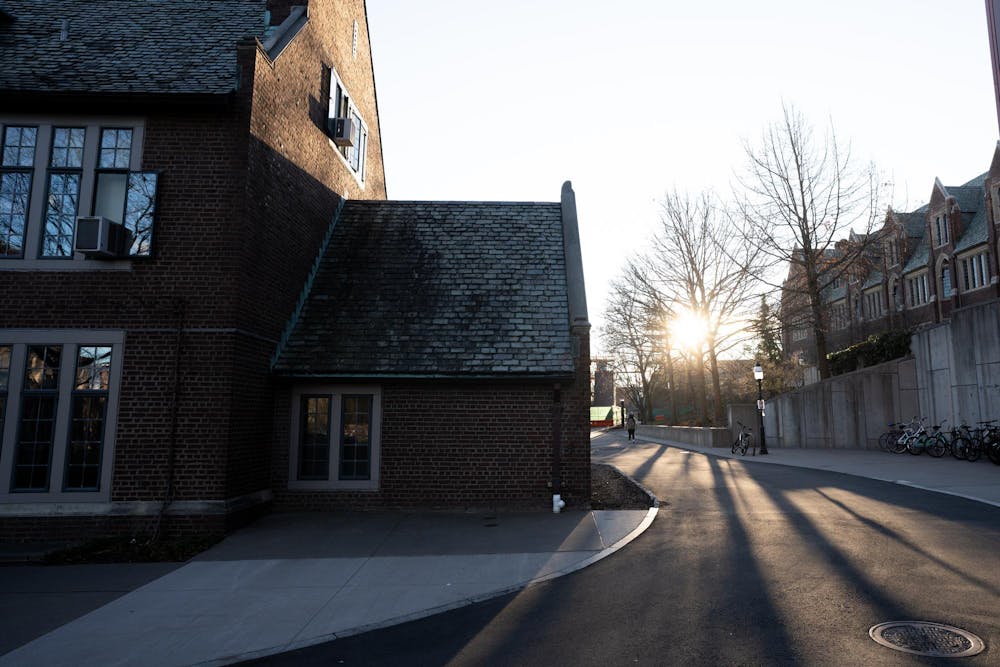Beginning Aug. 1, the copay for mental health visits in the Exclusive Provider Network (EPN) for students enrolled in the Student Health Plan (SHP) was reduced from $20 to $10 for the 2024–25 Plan Year. The plan also now completely covers the cost of EPN initial therapist consultations, meaning students on the plan can begin mental health care with an off-campus provider.
In addition to these changes to mental health benefits, University Health Services (UHS) shared additional and clarified information regarding international travel and fertility preservation coverage.
The 2024–25 SHP annual fee for undergraduate students has been raised to $3,510 — an increase of $360 from the previous year.
While undergraduates may choose to opt-out of SHP coverage, graduate students are automatically enrolled in the service.
In May 2024, the Undergraduate Student Government (USG) discussed mental health initiatives during their final meeting of the 2023–24 year. During this meeting, the financial burden of copays was highlighted as an issue of particular concern.
According to Vice President of the Graduate Student Government (GSG) Executive Committee Christopher Catalano, copays were also identified as a critical issue through the GSG’s participation in the Ivy Plus conference, a conference that involves participants from all Ivy League schools as well as other elite institutions such as MIT and UChicago.
“One of the topics that [came] up [during the conference] is healthcare, and in particular, mental healthcare,” Catalano said in an interview with the Daily Princetonian. “We found that a lot of our peer institutions have more comprehensive coverage for mental healthcare. Some of our peer institutions, for example, cover the first fifty-two visits with no copay.”
Catalano added that, when compared to Princeton’s peer institutions, SHP mental health coverage was the “least accessible and least comprehensive.”

After prioritizing this concern, a formal policy proposal advocating for the reduction or elimination of copays was prepared and submitted to the office of Vice President for Campus Life W. Rochelle Calhoun. This proposal included research findings, testimonials from undergraduate and graduate students, and cost estimates for various financing options.
The proposal specifically highlighted the disproportionate effects of copays on “low-income students, students with chronic mental illnesses, and other marginalized populations.”
In one testimonial, an undergraduate student shared anonymously that they “stopped going to therapy because of copays.”
“My family struggles financially and I feel like the school is fairly generous with the money it gives for financial aid, but I don’t understand why that generosity isn’t there for mental healthcare,” the student added.

According to Catalano, University administration was “very receptive” to the proposal. On July 12, the University Health Service (UHS) announced that the EPN copay had been reduced from $20 to $10 for the 2024–25 Plan year, and that initial visits to therapists would be covered at 100 percent.
The announcement stated that the decision to cover the cost of initial visits with therapists was made in order to allow students to “assess whether a therapist is the right match for them without incurring out of pocket costs.”
According to Catalano, a student on the SHP who sees a standard therapist once a week and a psychiatrist once a month will now save $600 per year. These benefits also apply to the dependents of enrolled students.
“I don’t think I can overstate the significance of that,” Catalano said. “I’m so proud we were able to get this done, and I’m so excited for the benefits that will be seen by all students now and going forward.”
“This initiative took about a year, so we’re very grateful to the University for prioritizing mental health and understanding the importance of our concerns,” Catalano added. “[The GSG is] really looking forward to continuing to work with the USG on healthcare, mental healthcare, and just making campus a place where all of its students can succeed and thrive.”
Ava Fonss is a staff News writer for the ‘Prince.’
Please send corrections to corrections[at]dailyprincetonian.com.








